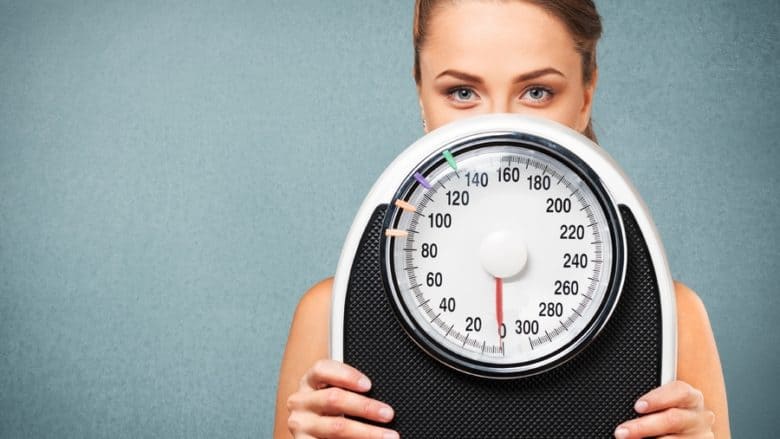Everyone knows that carb consumption must be kept to a minimum on the ketogenic diet.
But just giving up bread, pasta, and sweets does not mean you are following the low carb, high fat diet correctly. If you aren’t getting the results you hoped for, there’s a good chance that you have fallen victim to a few common keto mistakes.
In this article, we’ll go over the most common misconceptions on keto and how you can fix them.
#1: Scared of Eating Too Much Fat
People often not eat enough fat when they start keto because our society has been conditioned to believe that fats will make you fat.
Since you’re limiting carb intake on keto, it’s important that you’re replacing those calories with calories from fats. If you aren’t getting enough calories, it can impair your hormone function and metabolism in the long term. You’ll also feel more lethargic because you aren’t providing your body with enough micro and macronutrients.
In addition, your body needs increased dietary fat to prime your metabolism to burn fats as a main source of energy, also known as ketosis. If you’re a beginner to keto, you’ll need to consume more fats than experienced keto-ers as this will help your body get used to using ketones as a new fuel source.
#2: Not Eating the RIGHT Fats
Eating enough fats is half the battle. The other half is eating the right types of fats.
All fats are not created equal and because fats are the foundation of the ketogenic diet, it’s crucial that you’re consuming the right fat sources.
Healthy fats to eat on keto include:
- Animal fats, preferably from pastured or grass-fed animals
- Olive oil
- Monounsaturated fats, like from avocado
- Coconut oil
Avoid these unhealthy fats:
- Cotton seed oil
- Grapeseed oil
- Safflower oil
- Margarine
- Canola oil
- Processed vegetable oils
- Any trans fats
#3: Not Drinking Enough Water
Staying hydrated should be a top priority no matter what diet you are following.
But when your body is adjusting to burning fats for fuel, water intake should be increased. This is because carbohydrates are responsible for storing water in the body. When you limit your carb intake, water is excreted along with electrolytes which means they must be replenished.
The general rule of thumb is to drink 0.5 oz to 1 oz of water per pound of bodyweight. Others like to gauge their hydration levels by urine color. If it’s a darker yellow, drink more water. If it’s clear, you’re in the clear.
#4: Not Consuming Enough Sodium
Sodium is excreted along with water when your body is running on ketones for energy.
If you don’t replace your sodium on keto, you may fall victim to the dreaded keto flu, which is the main cause of not replacing your electrolytes. To prevent this, increase your sodium intake by salting every meal, adding pink Himalayan sea salt to your water and sipping on it throughout the day, as well as drinking broth from bouillon cubes.
GET YOUR CUSTOM KETO DIET PLAN IN 1-CLICK
#5: Too Much Dairy
While dairy may seem like the perfect low-carb and high-fat food source, it can be extremely easy to overeat. If you aren’t tracking the amount of dairy you consume, you may end up going over your calorie goal for the day.
In addition, dairy contains a certain type of protein that can lead to unwanted insulin spikes. When this happens, you may get kicked out of ketosis. To add fuel to the fire, many dairy products also contain sugar, so it’s important to always check the nutrition label when purchasing dairy products.
#6: Too Much Snacking
If you’re following a properly formulated ketogenic diet, you shouldn’t have to snack.
The keto diet has satiating effects which means if you’re in ketosis, your cravings for snacks should be nonexistent [*]. We suggest incorporating intermittent fasting into your keto diet, as this can provide a synergistic effect.
Too much snacking has a tendency to increase your blood sugar levels, which can knock you out of ketosis. If you feel the need to snack, it usually means your meals weren’t nutritious enough and you may need to increase your meal size to get enough calories in throughout the day.
#7: Not Sleeping Enough
If you aren’t getting enough sleep, your body can’t repair itself fully, which prevents you from functioning optimally.
Lack of sleep has been shown to increase sugar cravings and stress levels, which directly affect ketone production [*].
Try getting at least seven to eight hours of sleep every night. Limit screen use one to two hours before bed, so your body can perform at its best.
#8: Worrying Too Much About the Scale
Although the ketogenic diet is known for its tremendous weight loss benefits, the scale doesn’t always depict an accurate reading.
When you first start keto, you’ll experience water weight loss during the first few days. But once your body has adjusted to this new way of eating, it will retain some water.
Checking your weight multiple times a day will only discourage you from sticking with the ketogenic diet because weights naturally fluctuate.
A better metric to measure is your overall body composition and body fat levels. If you’re slowly gaining muscle and losing body fat over time, then you’re on the right track, even if your scale says otherwise.
Avoid These Mistakes to Get the Best Results on the Ketogenic Diet
The low carb, high fat lifestyle has tremendous mental and physical benefits, but only when you’re following a properly formulated keto lifestyle.
Instead of just focusing on restricting carbohydrates, approach your daily living with a holistic view. Make sure to get enough sleep. Staying hydrated. Consume healthy, whole foods. If you follow these rules, you will burn ketones for fuel more efficiently, so you can experience all the benefits of keto without the downsides.




